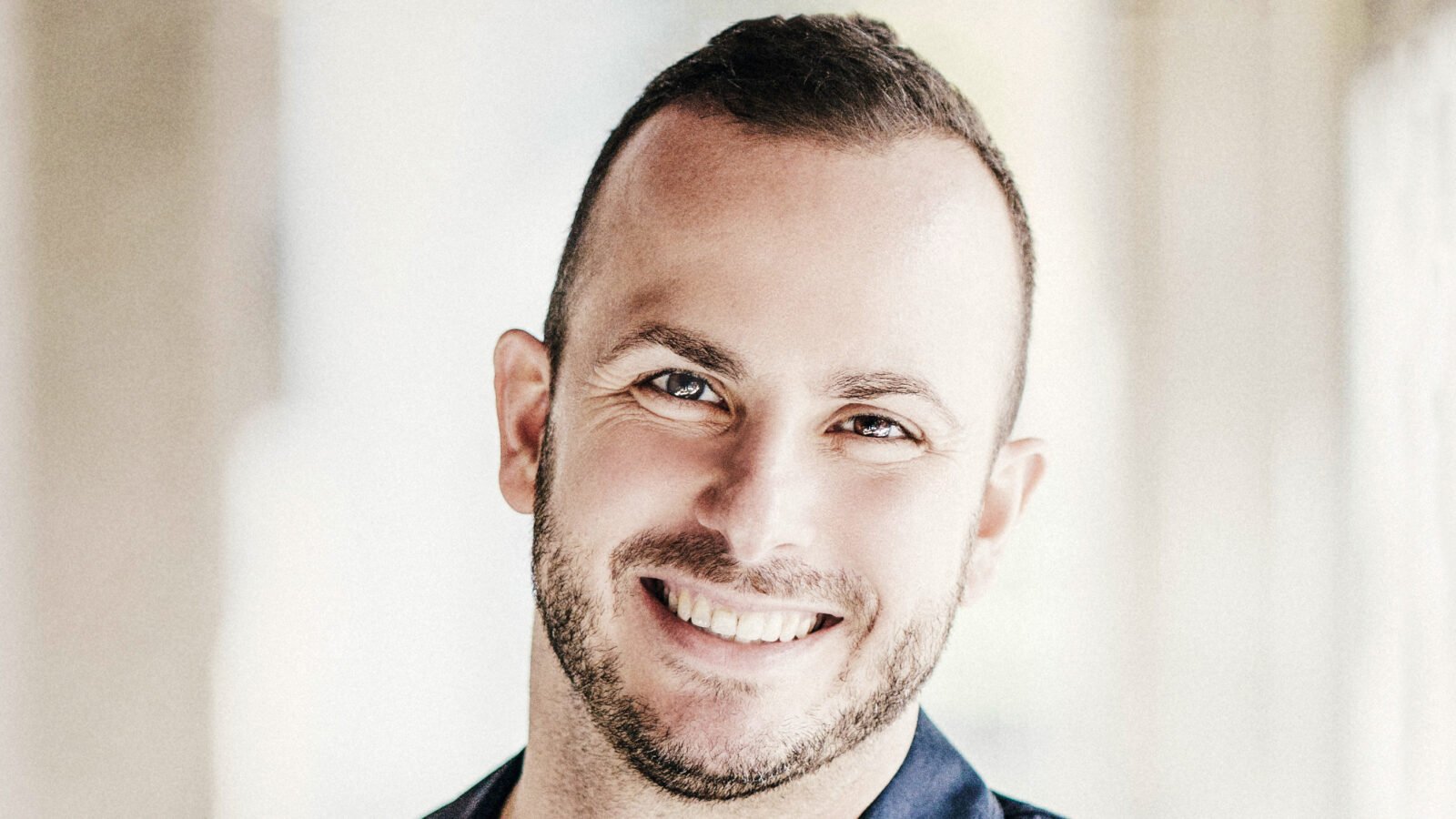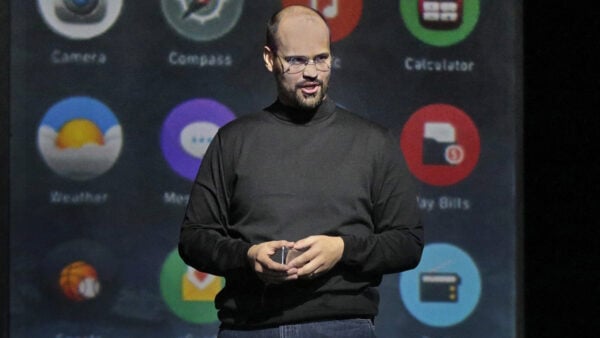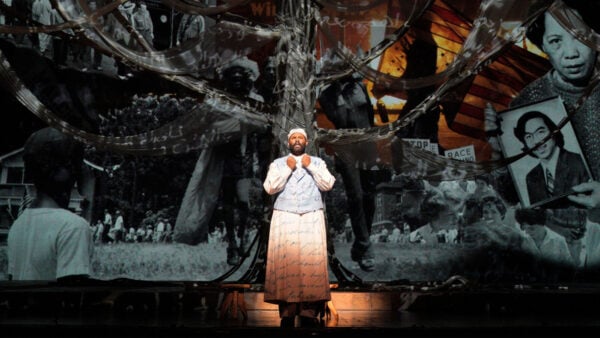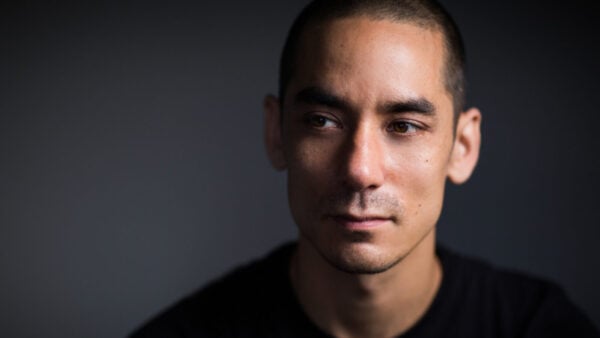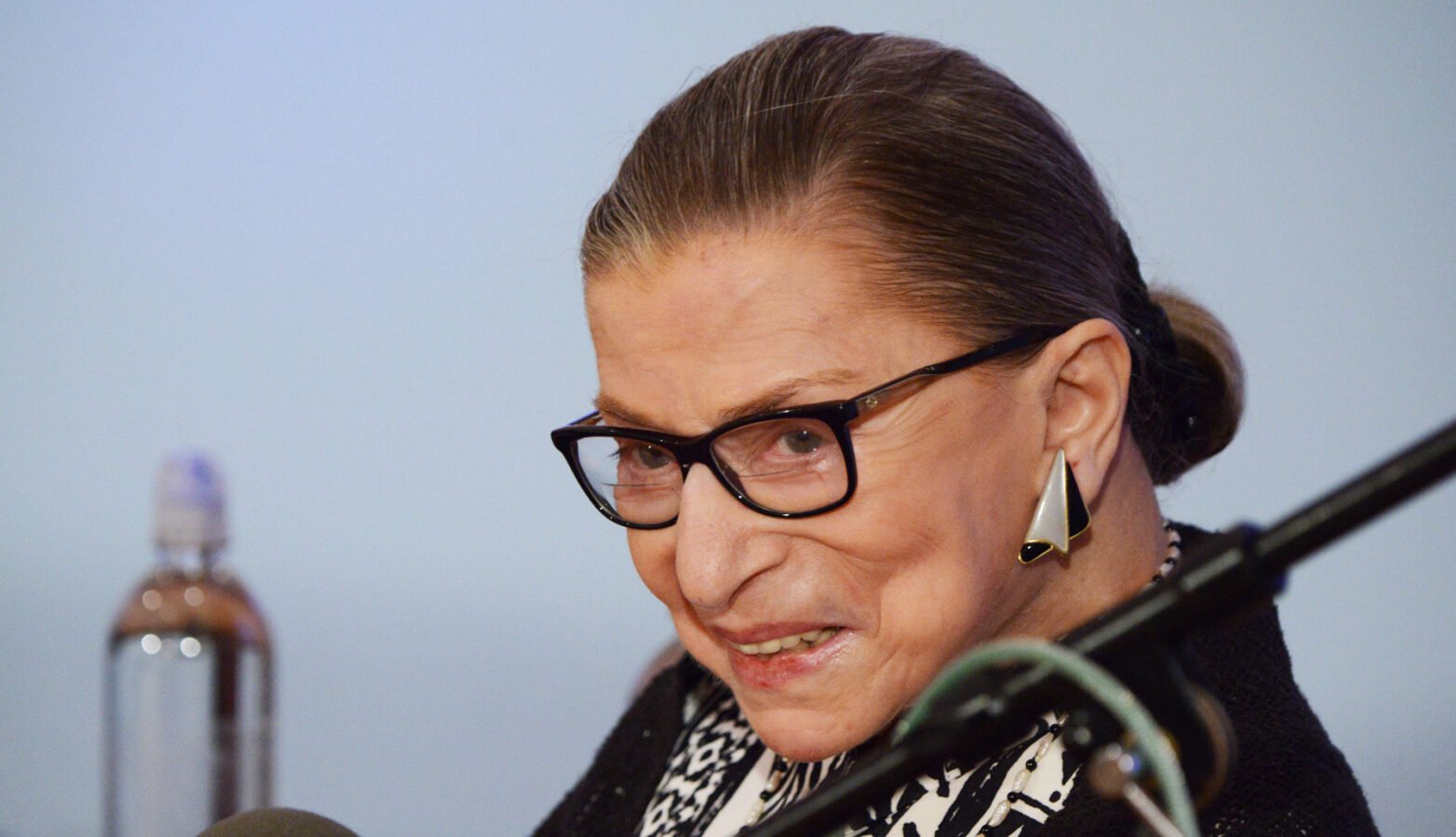
Ginsburg shared her lifelong passion for opera as a guest host on WFMT’s Middays with Lisa Flynn and Impromptu Monday, September 22, 2015. The Justice has been fascinated by opera since she was eleven years old, as she explained to Flynn: “I had never experienced anything like that before. The drama…the music.”
After her first hour as guest host, Ginsburg joined Flynn in front of a live audience in WFMT’s Levin Performance Studio to present “Opera and the Law.” In this special Impromptu broadcast, the Justice explored a range of legal themes from debates over the death penalty to literal vs. purposive reading of the law.
While lawyers and judges typically play minor characters in operas, Justice Ginsburg noted that the law itself plays a major role in many opera plots. She pointed out legal themes in Wagner’s Das Rheingold, Britten’s Billy Budd, and Jake Heggie’s Dead Man Walking.
In the “Seguidilla” from Bizet’s Carmen, the title character convinces her captor, Don José, to set her free. While most in the audience are swept up in Carmen’s siren song, Ruth Bader Ginsburg hears this scene as “opera’s most famous plea bargain.”
Ginsburg has done similar presentations for the American Bar Association (ABA) and at the 2015 Glimmerglass Festival in Cooperstown, New York. For Ginsbug’s “Opera and the Law” program at WFMT, artists from Lyric Opera of Chicago’s Ryan Opera Center performed excerpts from a wide range of works.
Throughout the hour, Ginsburg related the musical examples to controversial issues that have faced the Supreme Court in recent years. For example, she discussed the Supreme Court’s decision during the 2014-15 term to uphold lethal injection as a permissible means of carrying out executions before a live excerpt from Jake Heggie’s Dead Man Walking.
The Supreme Court’s decision also brought what Ginsburg said was, “a more basic question: whether the death penalty, whatever the means employed, is itself unconstitutional.” Watch the Justice’s full discussion of opera and the death penalty in the video below.
The topic of opera and the law isn’t devoid of humor, however. Justice Ginsburg enjoys a good satire and said “no team rivals Gilbert and Sullivan in treating law and lawyers." Watch the video below to find out why Ginsburg compares The Pirates of Penzance to the Supreme Court’s most recent term.
Another curious operatic satire of the law puts Ginsburg center stage. Derrick Wang’s new opera Scalia/Ginsburg, an opera based on Ginsburg’s friendship with Justice Antonin Scalia, premiered in July 2015. One duet, “We are Different, We are One,” portrays Scalia and Justice as people who differ on issues of “major import, but [are] one in our reverence for the institution we serve,” the Justice said at WFMT.
She continued, “We genuinely respect and even like each other. Collegiately of that sort is what makes it possible for the Court to do the ever challenging work the Constitution and Congress assign to us without the animosity that currently mars the operations of the political branches of our government.”
Despite her love of the opera, she critiqued the role of women in some works. “Opera presents certain difficulties for a feminist,” she said, “because most of the women, the heroines, are dying of consumption, or tortured to death, like little Liù in Turandot.”
But who defies this archetype? Watch the video to learn which Puccini heroine is Ginsburg’s favorite.
To hear the full “Opera and the Law” Impromptu with Justice Ginsburg, visit the Impromptu website.

